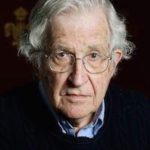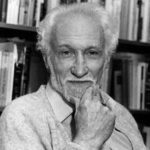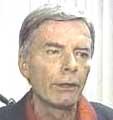The Threat of Democracy
The U.S. is the self-proclaimed global champion of democracy. But the term is used selectively. Take Hillary Clinton who was widely praised as an outstanding Secretary of State. At the height of the Tahrir Square uprising in Egypt protesting Mubarak’s 30-year dictatorship, she said, No country has done more for democracy in Egypt than the U.S. Mubarak for years was praised as an “ally,” a “partner” and a “moderate” and his regime was a force for “stability.” Washington backed him to the hilt to the tune of billions of dollars of taxpayer money, much like the Shah, Marcos, Suharto, Ben Ali, et al, until they too were overthrown. The media rarely report on these issues. And politicians and a mostly obedient intellectual class provide the necessary illusions to lull people to sleep. What many rulers fear is real democracy.
Speaker

Noam Chomsky
Noam Chomsky, by any measure, has led a most extraordinary life. In one index he is ranked as the eighth most cited person in history, right up there with Aristotle, Shakespeare, Marx, Plato and Freud. His contributions to modern linguistics are legendary. In addition to his pioneering work in that field, he has been a leading voice for peace and social justice for many decades. Chris Hedges says he is “America’s greatest intellectual” who “makes the powerful, as well as their liberal apologists, deeply uncomfortable.” The New Statesman calls him “the conscience of the American people.” He is Professor Emeritus in the Department of Linguistics and Philosophy at MIT and Laureate Professor of Linguistics and Haury Chair in the Program in Environment and Social Justice at the University of Arizona. At 95, he continues to inform and inspire people all over the world. He is the author of scores of books, his latest are Consequences of Capitalism, Chronicles of Dissent and Notes on Resistance.






FredA –
Tonight I listened to Doctor. Chomsky’s, Threat to Democracy, on University of WA public radio station segment. One of the topics that struck me was the reference that 70% of the American voters, mainly the Middle to Lower classes, had no impact on development of policy and decision making by their government. This goes hand in hand with the apathy with which this society is facing some of the most serious challenges it faces since WW II.
I have been following the so called “Arab Spring” developments in the Middle East and Dr. Chomsky’s description of components of change that has brought these seemingly “structural” changes in such countries as Egypt, Libya and Tunisia and its failed attempt in Bahrain, speaks volumes as to who and what is really behind all these maneuvers.
On Iran, I think he is correct in overall assessment of the independent tack that Iran has taken in its foreign policy and the hostile consequences of this action that we are witnessing daily on our media and legislators. Yet, I want to state, that while focus is on the higher levels of global policy and strategic alliances, we shouldn’t take the best measure of governance, the delivery of quality services to the governed off of our “radar”. In the end despite who owns the resources, and who is the aggressor and who is the victim, the bottom line is it not how a governing system delivers essential services to its people and how well the people are living vis-a-vis world standards?